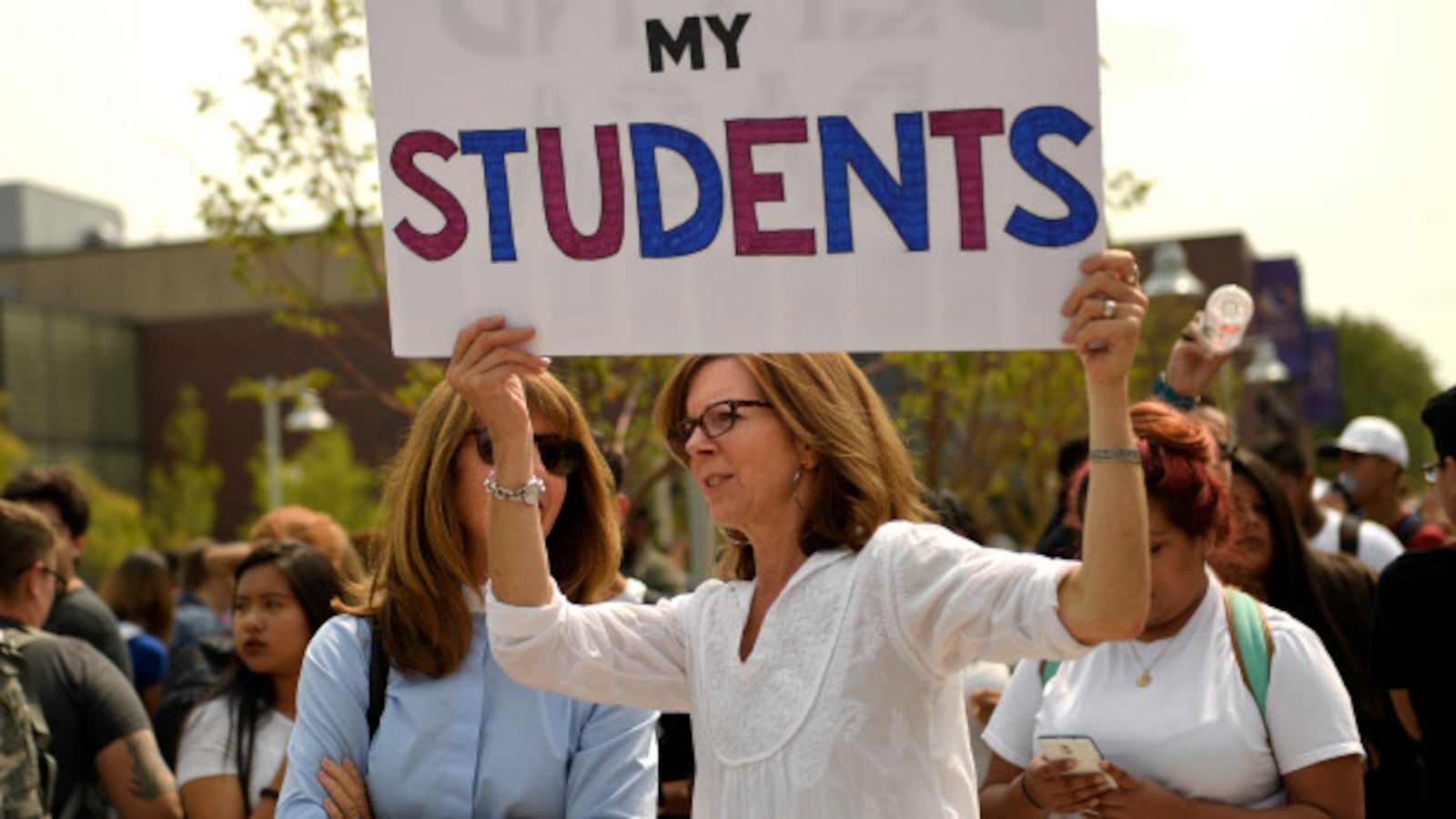While many high schoolers spend spring of their senior year coasting through classes and waiting to hear back from colleges, undocumented students who hope to attend college spend their time calling lawyers, consulting school counselors, and scouring the internet in search of ways to pay for school without the help of federal financial aid or student loans — assuming they even get in.
That process, anxiety-provoking even in a normal year, has become incalculably more chaotic this admissions season — even traumatic — as these young undocumented immigrants watch President Trump and lawmakers wrangle over Deferred Action for Childhood Arrivals, the program that has until now allowed them to remain in the country without having to fear deportation.
As the policy battle nears a climax, these students aren’t just breathlessly waiting to learn whether they’ll be accepted into college — they’re waiting to see whether they have a future in this country.
“It’s different for me. It’s definitely more stressful and there are times when you want to give up,” said an undocumented student at KIPP NYC College Prep High School, who is graduating this year and applying to colleges. She requested anonymity because of her legal status. “But then I remind myself that regardless of what’s going on, I’m still going to do what I’ve set myself to do.”
High school counselors are also feeling the strain. They already faced the difficult task of helping undocumented students compete for private scholarships, and finding schools that will support those students once they’re on campus. Now those counselors also must monitor each twist and turn of the immigration debate in Washington, while, somehow, trying to keep their undocumented students focused on college.
One of those counselors is John Kearney, who works at Guadalupe Centers Alta Vista High School, a charter school in Kansas City, Missouri. Dozens of his soon-to-graduate students are beneficiaries of DACA, a program created under former President Obama that allows undocumented immigrants who were brought to the country as children to avoid deportation and work here legally. Lately, they have been asking him why they should even consider college when their fate in the U.S. is so uncertain.
“The big question is, ‘Why? Why go to college, and then I can’t even work, then why?’” said Kearney, who also helped start a nonprofit that provides scholarships to undocumented students. “It’s a really tough question.”
As of Friday, President Trump and lawmakers were still locked in heated negotiations over DACA, which Trump said this fall that he would eliminate unless Congress enshrined it in law. Without an agreement, it is set to expire March 5, just as graduating seniors firm up their college plans. If that happens, young immigrants, often called Dreamers, could lose the few crucial protections they have. For many, their DACA status has already lapsed.
Even with DACA’s protections, Dreamers face massive hurdles to enroll in college: They don’t qualify for federal aid or loans, and, in some states, are barred from receiving financial aid or even attending public universities. Out of the estimated 65,000 undocumented students who graduate from high school every year, only 5-10 percent enroll in college.
Following Trump’s announcement in September, counselors have also had to race against the clock counting down to DACA’s expiration: That meant juggling college application deadlines with the October cutoff for students to apply for renewed DACA status.
The KIPP charter school network received a donation this year to help students pay for the renewal fee, which has been a godsend for many students — including the young woman who is graduating from KIPP NYC College Prep High School.
As soon as she learned the school would pay the fee for her, she immediately called her father, who is also undocumented and repairs beauty-salon equipment for a living.
“My dad was definitely trying to round up the money before the deadline, so it was a blessing that the school was able to find a donor,” she said. “I told him not to worry about it and it was a relief — like a weight off his shoulders.”
If the girl was trying to relieve her father’s stress, her college counselor, Rob Santos, was trying to do the same for her. Even as she balanced college-application essays, transcripts, and the rest, she was also coming to realize how quickly her life would change if DACA is not extended.
“There was definitely extra emotional support that I’ve had to provide this year,” Santos said. “I definitely had my DACA student in my office, and tears were happening.”
Santos keeps a running list of the colleges that accept students who don’t have permanent legal status and the few scholarships available to them. Many of those scholarships require undocumented students to have DACA status. If the program ends, it’s unclear whether students will still be eligible.
Still, Santos said his dreamer student rarely talks about the political furor surrounding her future in the U.S. as she awaits her college-acceptance letter. Instead, she’s more likely to discuss her hope of one day studying business and fashion.
“Our DACA students are resilient. They’re optimistic,” Santos said. “But they’re also realistic for what could actually happen.”


